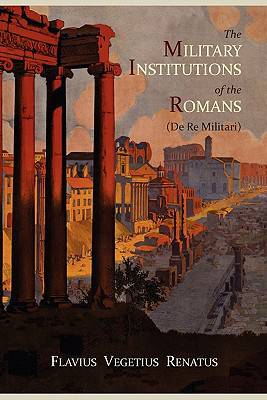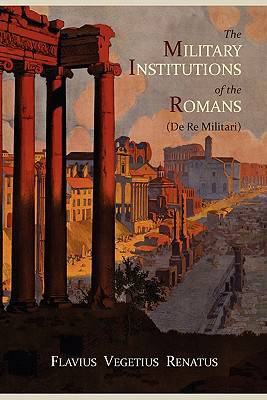
Door een staking bij bpost kan je online bestelling op dit moment iets langer onderweg zijn dan voorzien. Dringend iets nodig? Onze winkels ontvangen jou met open armen!
- Afhalen na 1 uur in een winkel met voorraad
- Gratis thuislevering in België vanaf € 30
- Ruim aanbod met 7 miljoen producten
Door een staking bij bpost kan je online bestelling op dit moment iets langer onderweg zijn dan voorzien. Dringend iets nodig? Onze winkels ontvangen jou met open armen!
- Afhalen na 1 uur in een winkel met voorraad
- Gratis thuislevering in België vanaf € 30
- Ruim aanbod met 7 miljoen producten
Zoeken
€ 13,45
+ 26 punten
Omschrijving
2011 Reprint of 1940 Edition. Full facsimile of the original edition, not reproduced with Optical Recognition Software. Originally published in "Roots of Strategy," by the Military Service Publishing Company, 1940. The only Latin art of war to survive, Vegetius' treatise was for long an essential part of the medieval prince's military education. The core of his proposals, the maintenance of a highly-trained professional standing army and navy, was revolutionary for medieval Europe, while his theory of deterrence through strength remains the foundation of modern Western defense policy. The work was written just before the fall of the Roman Empire in the West, at a time when economic weakness and political disintegration threatened to undermine the strategic defensive structure that had underpinned the Roman State for so long. The main thrust of his reforms was to confront the problems of the fragmentation of the army, the barbarization of its personnel, the loss of professional skills, and the substitution of mercenaries for standing forces. The accent of the work is on the practicalities of recruiting and training new model armies (and navies) starting from scratch, and on the strategies appropriate to their use against the barbarian invaders of the period.
Specificaties
Betrokkenen
- Auteur(s):
- Uitgeverij:
Inhoud
- Aantal bladzijden:
- 114
- Taal:
- Engels
Eigenschappen
- Productcode (EAN):
- 9781614270553
- Verschijningsdatum:
- 3/06/2011
- Uitvoering:
- Paperback
- Formaat:
- Trade paperback (VS)
- Afmetingen:
- 152 mm x 229 mm
- Gewicht:
- 176 g

Alleen bij Standaard Boekhandel
+ 26 punten op je klantenkaart van Standaard Boekhandel
Beoordelingen
We publiceren alleen reviews die voldoen aan de voorwaarden voor reviews. Bekijk onze voorwaarden voor reviews.











